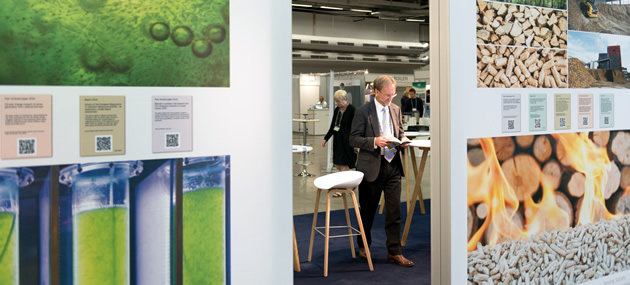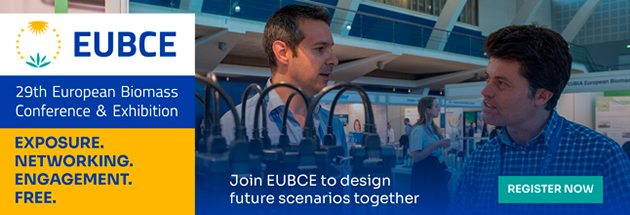 |
| |
Take a moment to learn about something new!
7 sessions designed to engage all delegates.
Whatever your field, industry, or expertise, you are invited to join and participate. EUBCE’s 7 plenary sessions will feature top experts, speaking accessibly, about current issues and trends. – Each LIVE presentation will be followed by an interactive Q&A with viewers through the EUBCE 2021 platform.
Plenary Session BP.2: Technological Advances
(13:45 CEST; 27 April)
Two comprehensible and comprehensive presentations on the progress made towards biogas and biomass gasification – by Aalborg University (Denmark) and Graz University of Technology (Austria), respectively – followed by a Q&A moderated by EC’s Maria Georgiadou (Belgium).
Wherever we look, technologies are being continuously developed and processes for the conversion of biomass to bioproducts are no exception. In this plenary session overviews of the progress made in two key areas, biogas and biomass gasification will be given.
The field of biogas has many relatively mature, while still improving technologies applied to the processing of a very wide range of feedstocks to a range of bioproducts. Holm-Nielsen reports on increased biogas potential by a factor three by 2030 in the EU, compared to 2020, using biodegradable wastes and residues from agriculture and from many industrial processes, as well as aquatic biomass. Case studies are used to illustrate successes and future potentials for the role biogas technologies in integrated infrastructures providing bioenergy, biomethane for static and mobile applications, energy storage, balancing of increasingly wind and solar fed electricity grids, natural gas grid greening, bio-CO2 recovery and Power-to-X, while playing a key role in the circular economy by recycling nutrients back to the soil.
Read more...

Plenary Session CP.1: Sustainable Aviation Fuels
(10:15 CEST; April 28)
Aviation: one of the key modes of transport that is still not using significant quantities of green fuels. During this session, three distinguished presenters layout some of the options to increase green fuel use within this sector.
One of the key transport areas not yet using significant quantities of green fuels is aviation. This plenary session will address some of the options and opportunities for greater use of green fuels in this sector.
Sustainable Aviation Fuel (SAF) is the subject of a new policy in the EU and new legislation is expected in the near future. There is an urgent need to reduce aviation fossil fuel emissions, however green fuels conforming with strict fuel specifications, and specifically fuels produced from wastes and residues, are so far in very limited supply. O’Malley et al. report on studies on the availability of feedstocks to meet growing demand. SAF made from fats, oil, and greases (FOGs), agricultural and forestry residues, the biogenic fraction of municipal and industrial waste, and cover crops are considered in an estimate of the potential feedstock availability in 2030, also taking into account the maturity of fuel conversion pathways and competing uses of the feedstocks. Non-biogenic feedstocks such as industrial flue gases and renewable power-to-liquids technologies are also considered.
Read more...
For more on these and the other plenaries listed below, read the session summaries by EUBCE Executive Committee member David Baxter.
Get tickets & mark your calendars today!

   
www.eubce.com
|
|
|
| |
COORDINATION OF THE TECHNICAL PROGRAMME
|
|
|
|
|
|
|
|
|
|
|
 |
|

